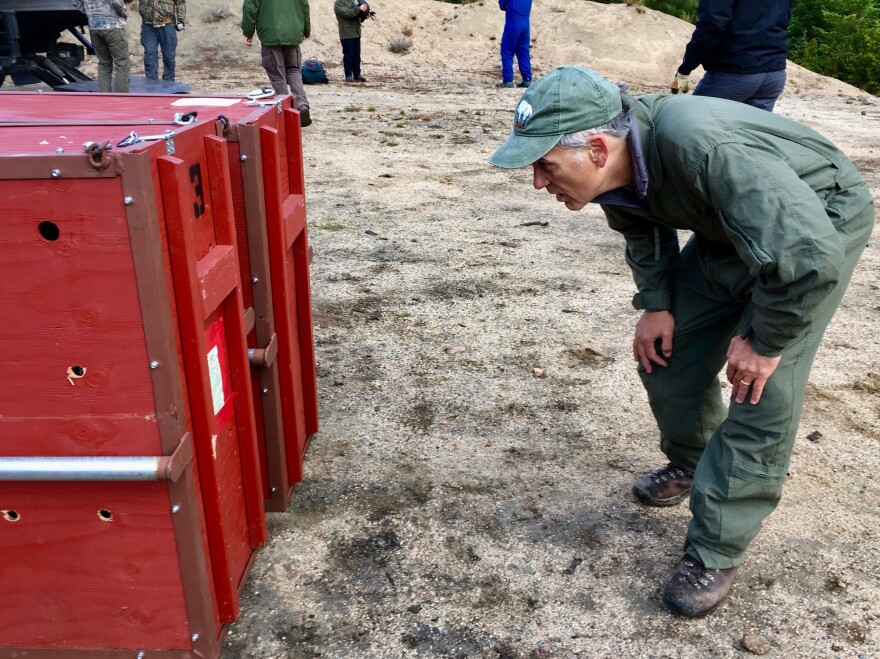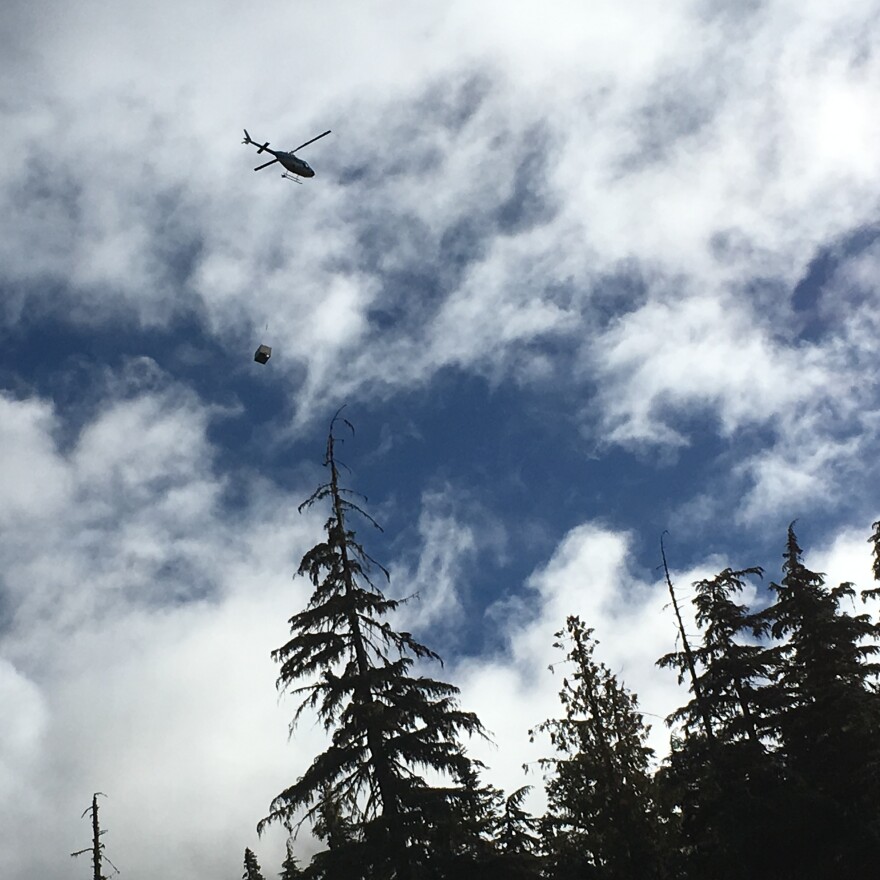The National Park Service has embarked on a three- to five-year plan, in collaboration with the Washington Department of Fish and Wildlife and the National Forest Service, to remove all mountain goats from Olympic National Park in Washington state.
As part of that plan, more than 75 mountain goats arrived in Washington's North Cascade mountains by refrigerated truck — to keep the goats cool — in recent weeks, before they were transferred to helicopters for the ride of their lives.
The mountain goats came from Olympic National Park, where they are a non-native species that has wreaked havoc on the fragile alpine ecosystem and harassed hikers.
The goats crave salt and enzymes found in human sweat and urine and some have come to see humans as delicious, walking salt licks. A male mountain goat killed a hiker in Olympic National Park in 2010.
Roughly half of the 700 goats in the park will be relocated to the North Cascade mountains, where the goats are a native species. The rest will be killed. The Park Service will only be relocating goats captured in the most remote parts of Olympic National Park, where they have not become habituated to humans.

A "win-win"
Mountain goats are native to the North Cascade mountains, though the population has been declining since the mid-1900s and experts aren't sure why. Ruth Milner has been studying mountain goats in the North Cascades with the Washington Department of Fish and Wildlife since the 1990s. She said relocating goats from the Olympic Peninsula to the North Cascades is a win-win.
"It's kind of the perfect storm of their [Olympic National Park's] need to remove goats and our need to have goats returning to the Cascades," Milner said. The population of mountain goats in the North Cascades now hovers at roughly 3,000, down from a recorded high of 10,000 goats.

"This translocation effort isn't going to solve the problem," said David Wallin, a professor in the environmental sciences department at Western Washington University. "But we figure we can move 300 to 400 goats over and that's a 10 percent bump in the population [in the North Cascades]. Our hope is that will help jump start the recovery." The infusion of goats will boost the genetic diversity of the dwindling North Cascades population.
Not their first goat rodeo
This is not the first time the Park Service has attempted to get rid of the mountain goats in Olympic National Park. In the 1980s several hundred goats were captured and relocated across the West, with limited success. But wildlife managers saw improvements within the Olympic National Park after the relocation.
"We saw the ecosystem bounce back," said Patti Happe, a wildlife biologist at the park. "When you get a group of goats hanging out in an area they move around and trample the soil and fragile vegetation. Goats have this habit that they like to dust bathe. They form these wallows and create big patches of exposed soil, and with erosion they get bigger and bigger."
But not all the goats were removed at the time. Since then the population has rebounded, and continues to rise at a rate of 8 percent per year.
"We know where it's headed and we want to act now," Happe said. "I've been working on this project for a very long time. It's time to resolve this. The more we wait, the more goats we're gonna have to deal with."

So far this fall, more than 75 goats have been captured in Olympic National Park and delivered to sites across the North Cascades. Three more goat capture and relocation events are planned for 2018 and 2019.
The relocated mountain goats were fitted with radio collars and tagged so that their movements can be monitored in the coming years as they spread out and explore their new habitat.
Copyright 2021 NPR. To see more, visit https://www.npr.org. 9(MDA5NTM4MTIyMDE0MTg3NDc2MTVlZjdmNQ001))



